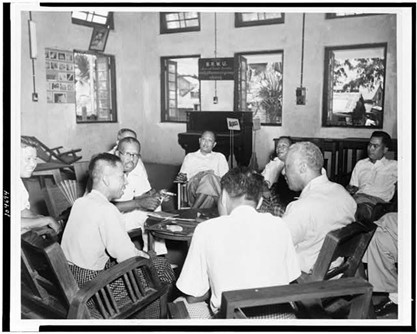A Black Socialist in the Decolonising World
A. Philip Randolph was a godfather of the American civil rights movement. He was a mentor to Martin Luther King Jr. and recently departed congressman John Lewis, who all spoke at the 1963 March on Washington. He began his career as an activist during the Harlem Renaissance in the 1920s, editing the radical Black political journal The Messenger. He then led the Brotherhood of Sleeping Car Porters, America’s largest Black union, while campaigning for the desegregation of the American labour movement through the 1930s.
Randolph was deeply committed to socialism, which he saw as the only political path able to address the exploitation of the African American working class. He was part of a tradition of black internationalism, which joined forces with the decolonising world to campaign against white oppression. As Soviet propagandists highlighted America’s neo-colonialist ambitions and history of racial oppression, the U.S state department fought back by subsidising the journeys of African American intellectuals and cultural icons, including many on the left, to Asia and Africa in the 1950s. With the decolonising world deeply distrustful of capitalist exploitation, Randolph’s faith in socialism put him in a unique position to connect with political and labour movements in Asia and Africa on a personal level. He understood the ways in which they navigated the politics of the Cold War and their commitment to a ‘Third Way’. At the same time, Randolph used his position as an unwitting ambassador for American democracy to strengthen the causes of socialism and civil rights at home. While he has recently been recognised as “America’s most underrated socialist,” we should also acknowledge his connection to social and political movements in the wider decolonising world.
by Su Lin Lewis
